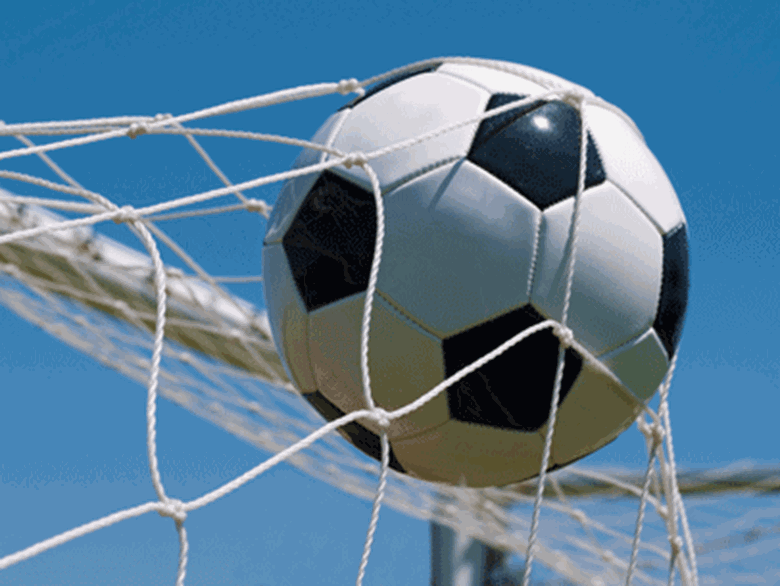Learning and Development: Football - Premier league
Michael Jones
Monday, August 8, 2011
Playing football offers children so much more than just physical challenge, says Michael Jones.

You may love football, you may hate it, but you have to admit that many children find it quite fascinating! As well as the obvious benefits for children's physical development, football and other sports have great potential for developing children's language and role play, while at the same time promoting social understanding and well-being.
LANGUAGE AND LEARNING
Every sport has its own vocabulary, and football has a lot of words and expressions that children love to use - referee, penalty, goal, red card, yellow card, offside (let's not go there!), corner, flag, half-time, goalie, foul, sent off, celebration. There are lots of opportunities for using action words, such as kick, score, dribble, throw, pass, fall down, get up, run, jump and head the ball.
Then there's the football kit, and talk about colours and recognising the team from its stripes and logos. By talking about the names of the players, and which club or country they play for, we are encouraging many aspects of learning, including knowledge of the local community and the wider world.
Children who are reluctant to become involved with books often love to look at football magazines, and will become deeply involved in sorting football cards by players, team colours and even countries.
ROLE PLAY
When we watch young children playing football, they are usually deeply involved in acting out what they have seen, either on TV, in the park or perhaps even at a real match.
Older children who use their jumpers as goalposts and have a kick-about are developing their physical skills, but what they are doing is primarily role play. This role play, where children often act out extreme emotions and practise using the language of their sport, is just as valid as anything that happens in our designated role-play areas. Most of this play will happen spontaneously if children are given the chance and encouragement by practitioners.
CULTURAL IDENTITY
 David Stevens, manager of the Angel Community Nursery in Westminster (part of the London Early Years Foundation), and colleagues actively promote football. 'For many children, it's a way of expressing their identity,' he says. 'It can come from a family tradition of supporting a local club, or develop spontaneously. It can grow into a very big interest, and a passion that will remain with them, and may even be passed on to their own children.
David Stevens, manager of the Angel Community Nursery in Westminster (part of the London Early Years Foundation), and colleagues actively promote football. 'For many children, it's a way of expressing their identity,' he says. 'It can come from a family tradition of supporting a local club, or develop spontaneously. It can grow into a very big interest, and a passion that will remain with them, and may even be passed on to their own children.
'If a child wears a particular country's kit because it represents the family's heritage, then talking about the kit is a way to explore and celebrate the child's cultural identity. Family members often all support the same team, and even say, "We are a Chelsea family". By acknowledging the child's interest in football, we are making a link with their family and their interests.'
When I visited the nursery on a fact-finding mission about children and football, many children were wearing their team's outfits, and parents proudly described to me why the family supports a particular team or country.
PLAYERS' BEHAVIOUR
But what about the behaviour of many professional players? Surely it's not good to watch players fighting, shoving and occasionally spitting and swearing on TV or even first-hand. Mr Stevens sees a lot of scope in football for exploring emotions. It's a great opportunity to talk about feelings, and whether it is right to hit someone because they tripped you up, or to start shouting because the referee has told you off.
'We can talk about winning, losing and sharing: passing the ball is sharing the ball. Children can recognise and talk about powerful emotions by looking at photographs of players in action, and from the expressions on their faces and their body language as they celebrate winning, weep openly because they have either lost or won an important match, or howl in pain because their Achilles tendon has just snapped.'
Having a kick-about can be great fun, and it simply makes children feel good. And you have to admit it, if more men hugged each other, then the world would probably be a happier place too.
I asked Mr Stevens about some practitioners' concerns that being so accepting of football somehow sanctions the hostility that may later be expressed in intense inter-team rivalry.
'Very young children tend to focus on booting the ball and squabbling about who should have it,' he says. 'Our role is to encourage the fun aspect and passing and sharing. As children get older they become more aware of "their team", and we can channel this positively by talking about and celebrating everyone's teams.'
Michael Jones is a trainer and writer specialising in children's language development. For more information visit www.talk4meaning.co.uk
FURTHER READING
See our five-part series on physical development at www.nurseryworld.co.uk/go/physicaldevelopment. For more learning and development articles visit www.nurseryworld.co.uk




